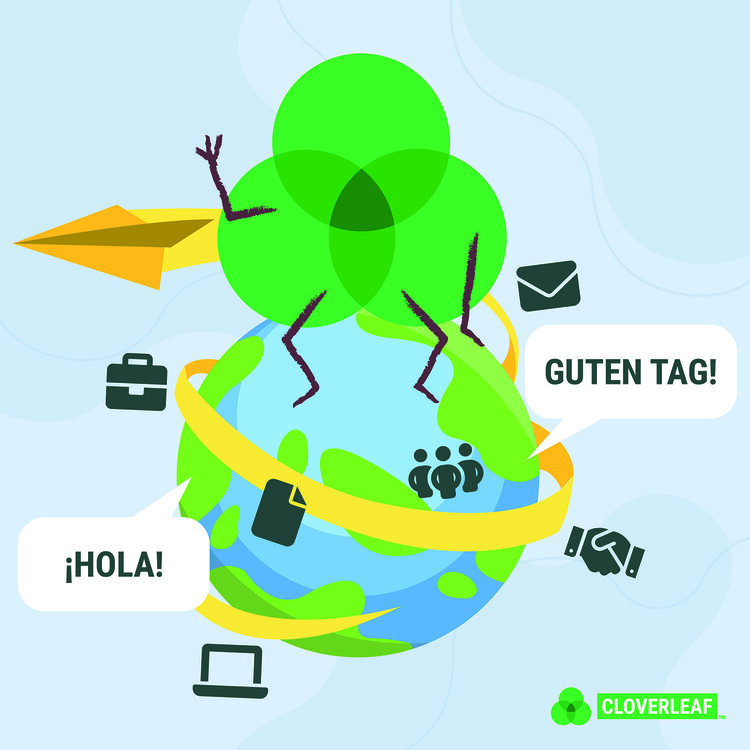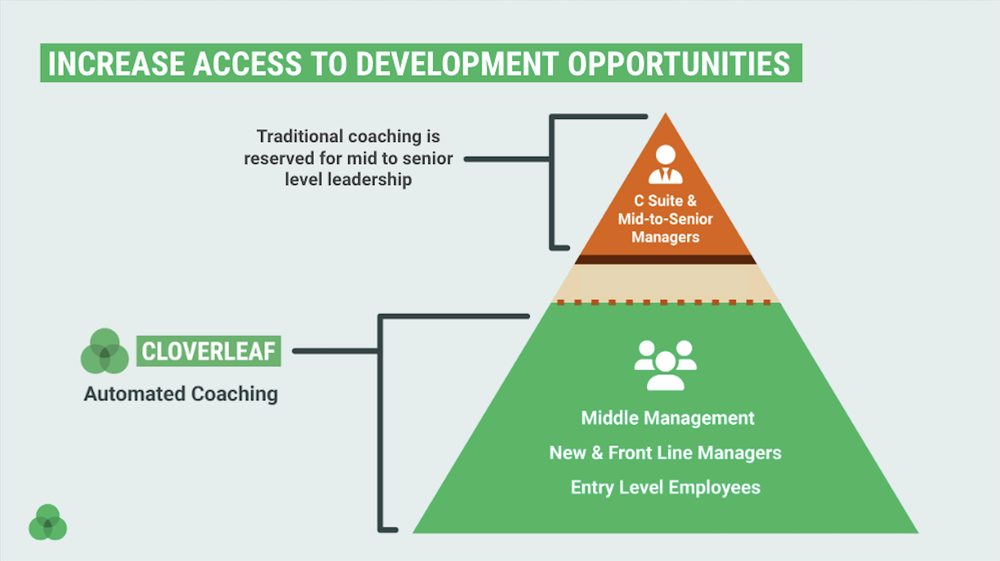How we work has fundamentally changed in the last few years, with remote work becoming an increasingly common aspect of the modern workplace. As teams grow more geographically dispersed, companies face new challenges in managing remote employees and maintaining effective collaboration.
One of the most significant challenges remote employees face is the development of professional familiarity, which entails gaining insight into their colleagues’ work habits, strengths, values, and preferences related to their jobs. – fastcompany.com
At the heart of successful remote collaboration lies the ability to foster self-awareness and emotional intelligence within team members, which is essential for building strong connections and overcoming the social distance that can arise in displaced team environments.
This blog post will explore the importance of self-awareness and emotional intelligence in remote collaboration and strategies for engaging and motivating globally-dispersed teams.
As remote work continues to evolve and expand, organizations must understand the challenges and opportunities this new way of working presents. One key challenge in a hybrid work model is managing the social distance between team members working from home or in remote locations, which can lead to feelings of isolation and disconnectedness.
Organizations can reduce social distance, improve communication, and promote a more cohesive and collaborative work environment by developing self-awareness and emotional intelligence in remote team members.
In the following sections, we will delve deeper into the social distance, explore the benefits of fostering self-awareness and emotional intelligence in remote teams, and provide practical strategies and tools to enhance remote collaboration and communication. Additionally, we will discuss methods for engaging and motivating globally-dispersed teams to create a more inclusive and effective remote work culture.

Understanding Social Distance In A Geographically Dispersed Team
Social distance refers to the emotional connection, or lack thereof, among team members, particularly in remote work environments. As teams become more geographically dispersed, the potential for increased social distance can hurt team dynamics, leading to feelings of isolation and a lack of cohesion within the group.
Negotiation and leadership experts have long advocated for perspective-taking—attempting to understand your counterpart’s thoughts, feelings, and motives. The result is reduced social distance. – hbr.org
If employees feel disconnected, it becomes more challenging to establish trust, maintain open communication, and foster a sense of belonging, which are all crucial for effective team collaboration.
The Challenge Of Connecting And Coordinating In Dispersed Teams
In dispersed teams, connecting and coordinating with one another can be daunting. Differences in time zones, work schedules, languages, and cultural backgrounds can all contribute to the challenges of remote collaboration. As a result, team members may find it difficult to develop strong working relationships, share knowledge effectively, and stay aligned with their colleagues’ goals and priorities. This can lead to miscommunication, confusion, and a decline in overall team productivity.
In response to the diverse needs of its global community, Cloverleaf is refining its platform by integrating core features and functions in multiple languages. Currently, users can select Spanish or German within their dashboard and enjoy the Cloverleaf experience in their chosen language. This enhancement aims to provide a more inclusive and accessible experience for users worldwide.

HUMAN SKILL PROGRAMS ARE HITTING LIMITATIONS...
- Close the widening gap between learning and on-the-job application
- Overcome the tension of pausing productivity for development opportunities
- Integrate learning so it is actually in the flow of work
- The evolution of human skill development
- What Automated Coaching™ is and how it works.

Reducing social distance in remote work environments is essential for promoting effective collaboration and fostering a positive team culture.
EI is all about empathy, inclusion, and respect — traits that are more important than ever at a time when managers and employees have no idea what challenges their colleagues are facing… – forbes.com
Addressing social distance is a crucial management task for leaders of asynchronous teams, as it can directly impact overall performance and success. By minimizing social distance, leaders can help their virtual teams feel more connected, engaged, and supported. This, in turn, can lead to improved communication, a better understanding of colleagues’ perspectives, and increased teamwork toward shared goals.
Fostering Self-Awareness And Emotional Intelligence In Dispersed Teams
Self-awareness refers to an individual’s understanding of their emotions, strengths, weaknesses, and thought patterns. At the same time, emotional intelligence encompasses the ability to recognize, interpret, and manage one’s own and others’ emotions effectively.
Both self-awareness and emotional intelligence in the workplace are critical components of successful remote collaboration. They enable teammates to navigate complex interpersonal dynamics, adapt to diverse communication styles, and empathize with their colleagues’ perspectives.
The Benefits Of Self-Awareness And Emotional Intelligence In Remote Work
Developing self-awareness and emotional intelligence can significantly improve remote team collaboration in at least four impactful ways:
Better Communication: Teammates with emotional intelligence are more likely to express their thoughts and feelings clearly and constructively, facilitating open and honest dialogue within the team.
More Collaboration: Self-aware individuals are better equipped to recognize their strengths and weaknesses, enabling them to contribute more effectively and collaborate more closely with their teammates.
Cloverleaf’s assessment-driven coaching helps team leaders and members to adapt their leadership, communication, and behavior in real-time. The insights help teams uncover and leverage employee strengths and potential. Plus, individuals can see how diverse or similar their team is and how they complement one another.
Less Conflict: An essential aspect of cultivating high emotional intelligence within a team is consciously attempting to understand situations from each member’s unique viewpoint. Emotional intelligence helps teammates identify and address potential conflicts before they escalate, fostering a more harmonious workplace.
Stronger Adaptability: Emotional intelligence serves as a foundation for adaptability. Emotionally intelligent individuals can more easily adapt to changes and challenges, making them invaluable assets in the dynamic landscape of geographically dispersed teams.
3 Practices For Engaging And Motivating Globally-Dispersed Teams
To cultivate a robust sense of unity and teamwork within remote workers, consider adopting the following approaches: promoting transparency, nurturing a sense of community, and encouraging knowledge-sharing.
Embrace Transparency To Strengthen Trust
Establish Clear Goals And Expectations: Clearly define team objectives and individual responsibilities, ensuring everyone is aligned and working towards common goals.
Encourage Regular Communication: Promote remote communication among teammates through various channels, such as video calls, instant messaging, and check-ins.
Use A Coaching Approach: Adopt a leadership mentality responsive to employees’ needs, providing guidance, encouragement, and recognition when appropriate.
Cultivate Inclusivity: Encourage your team to be open to diverse perspectives, experiences, and ideas.
Facilitate Community-Building
To facilitate community-building among geographically dispersed teams, focus on implementing activities that effectively bridge the social distance between teammates. These activities can help foster trust, empathy, and a sense of camaraderie.
Examples include engaging icebreaker questions, scheduling virtual social events, organizing cross-functional projects, and offering training sessions to strengthen team-building, communication skills, and emotional intelligence skills.
Team Building Questions: Kick-off virtual meetings with icebreakers to help people get to know each other better.
Virtual Lunches Or Coffee Breaks: Schedule regular virtual social events where teammates can connect and chat informally.
Collaborative Problem-Solving: Consider projects that benefit from cross-functionality to streamline processes, brainstorm, and improve workflow.
Workshops And Training: Provide virtual training sessions to enhance team-building, effective communication, and emotional intelligence skills.
Encouraging Knowledge-Sharing
Encouraging a culture of knowledge-sharing and ongoing learning is essential for maintaining connectedness, engagement, and motivation within dispersed teams. To foster this culture, consider the following:
Creating A Centralized Knowledge Repository: Utilize a cloud-based platform like Google Drive or Dropbox where teammates can access relevant information, share files, and whiteboard.
Utilize Easy-To-Use Communication Tools: Implement user-friendly collaboration tools like Slack, Zoom, Asana, or Trello so that it is easy to contribute, find, and access information.
Hosting Virtual ‘Show and Tell’ Sessions: Designate regular team meetings to showcase projects and share learnings.
Celebrating Team Achievements: Acknowledge individual and team accomplishments regularly to help reinforce a sense of purpose and pride in the team’s work.
The Importance of Continuous Learning and Adaptation
As remote collaboration continues to evolve, so too must the strategies and practices used to manage and support dispersed teams. To stay ahead of the curve, organizations and team leaders must commit to reassessing virtual collaboration and procedures to ensure they remain effective.
Equally important is fostering a culture of ongoing learning and professional growth among employees, empowering them with the support, tools, and skills to excel in a virtual environment.
The momentum behind the global shift to remote work continues to grow, driven by organizations embracing flexible working arrangements to adapt to their employees’ diverse needs and preferences.
This reality underscores the importance of developing innovative tools, techniques, and best practices to facilitate effective collaboration among coworkers, regardless of their physical location.

Placing emphasis on self-awareness, emotional intelligence, and community-building within dispersed teams enables organizations to maintain agility, productivity, and success in the constantly changing landscape of work. As geographically dispersed teams unite individuals with diverse backgrounds, cultures, and experiences, it is essential for organizations to foster environments that appreciate this diversity and encourage understanding, empathy, and mutual respect among team members.






